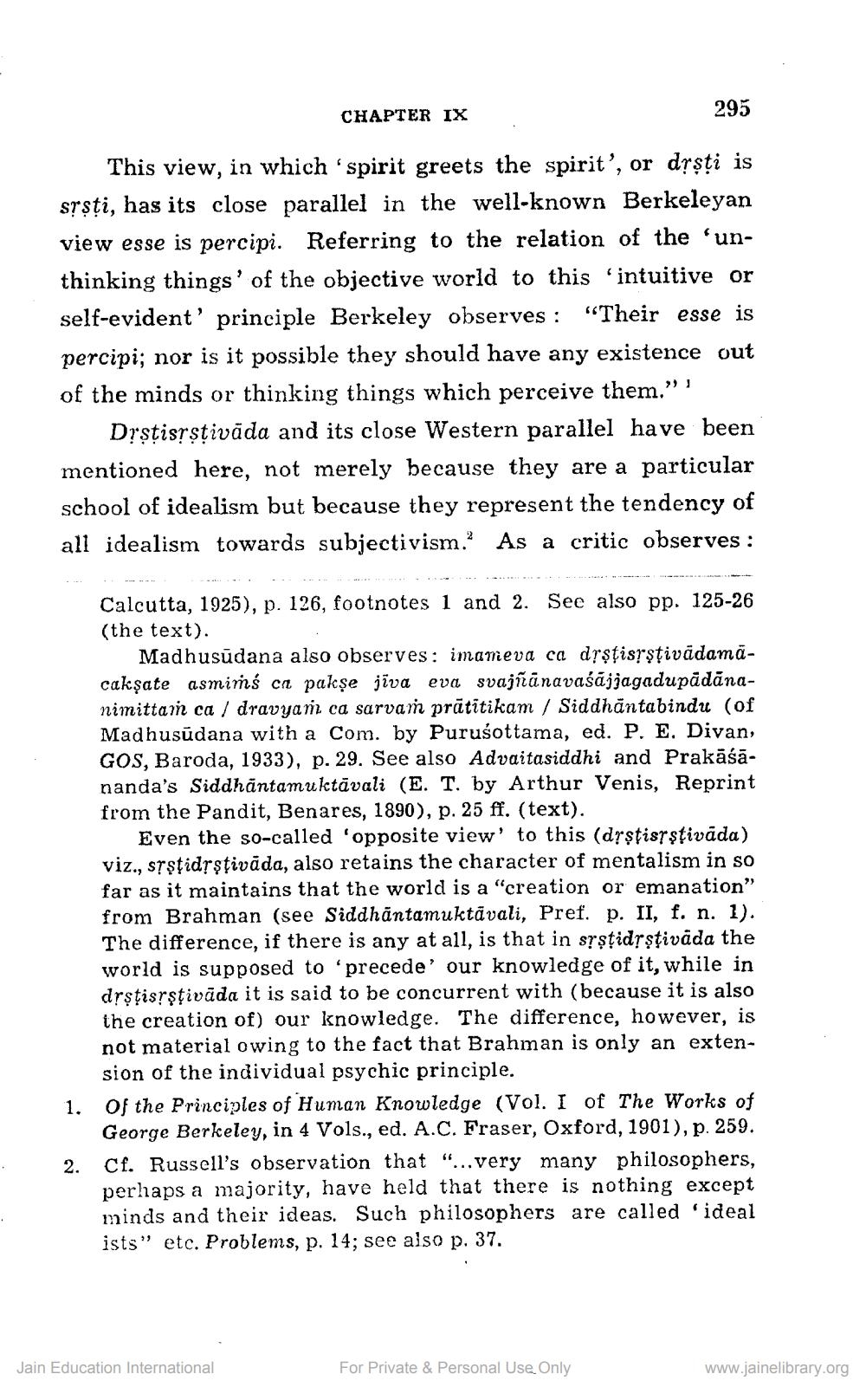________________
1.
This view, in which 'spirit greets the spirit', or dṛṣṭi is sṛṣṭi, has its close parallel in the well-known Berkeleyan view esse is percipi. Referring to the relation of the 'unthinking things' of the objective world to this 'intuitive or self-evident' principle Berkeley observes: "Their esse is percipi; nor is it possible they should have any existence out of the minds or thinking things which perceive them."'
Drstisṛṣṭivada and its close Western parallel have been mentioned here, not merely because they are a particular school of idealism but because they represent the tendency of all idealism towards subjectivism." As a critic observes:
2.
CHAPTER IX
295
Calcutta, 1925), p. 126, footnotes 1 and 2. See also pp. 125-26 (the text).
Madhusudana also observes: imameva ca dṛṣṭisṛṣṭivādamācaksate asmimś ca pakse jiva eva svajñānavaśājjagadupādānanimittam ca / dravyam ca sarvam pratitikam / Siddhantabindu (of Madhusudana with a Com. by Purusottama, ed. P. E. Divan, GOS, Baroda, 1933), p. 29. See also Advaitasiddhi and Prakāśānanda's Siddhantamuktavali (E. T. by Arthur Venis, Reprint from the Pandit, Benares, 1890), p. 25 ff. (text).
Even the so-called 'opposite view' to this (drstisṛṣṭivāda) viz., srstidṛstivada, also retains the character of mentalism in so far as it maintains that the world is a "creation or emanation" from Brahman (see Siddhantamuktavali, Pref. p. II, f. n. 1). The difference, if there is any at all, is that in sṛṣṭidṛṣṭivada the world is supposed to 'precede' our knowledge of it, while in dṛṣṭisṛṣṭivada it is said to be concurrent with (because it is also the creation of) our knowledge. The difference, however, is not material owing to the fact that Brahman is only an extension of the individual psychic principle.
Jain Education International
Of the Principles of Human Knowledge (Vol. I of The Works of George Berkeley, in 4 Vols., ed. A.C. Fraser, Oxford, 1901), p. 259. Cf. Russell's observation that "...very many philosophers, perhaps a majority, have held that there is nothing except minds and their ideas. Such philosophers are called 'ideal ists" etc. Problems, p. 14; see also p. 37.
For Private & Personal Use Only
www.jainelibrary.org




